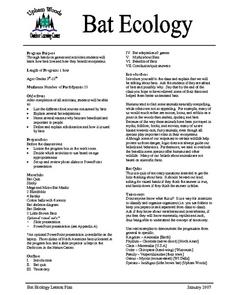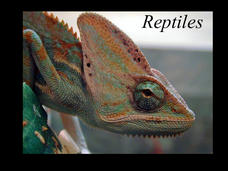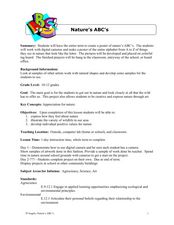Curated OER
Building a Terrarium System
Young scholars create their own terrariums. In this ecological model lesson, students create terrariums using soil, seeds, pebbles, and two liter bottles. Young scholars compare the elements of a terrarium to a food web.
Science Matters
Lotusland
It's time for a field trip! Scholars take their new-found knowledge of adaptations and seed dispersal on a field trip to a local botanical garden. They gain an up-close look at how ecological interdependence works in a distinct...
Curated OER
Eco-enrichers
Students discover the importance of plant and animal components within soil. In this soil instructional activity, students test the quality of soil. Students then conduct an experiment adding different components to bags of soil to see...
Curated OER
Building on the Land
Ninth graders study how cities affect the environment and design an ecologically-sound city. They focus their study on the benefits and constraints of life on the Northern Great Plains.
Curated OER
Classroom Aquaponics: Exploring Nitrogen Cycling in a Closed System
Students investigate nutrient cycling in a simplified desktop ecosystem involving aquarium and hydro-ponically grown plants. They set up an aquarium with 10 gallons of water at least a week before the lab is planned and place...
Curated OER
Toward a Sustainable Agriculture
Students examine how to use ecological analysis to animal production systems. In this sustainable agriculture lesson students examine where the nutrients flow in a system and complete several activities.
Curated OER
The Greenhouse Effect
Seventh graders investigate the temperature change in open and closed containers. For this earth science lesson, 7th graders relate this lab activity to greenhouse effect. They create a line graph from data collected in the experiment.
Curated OER
Scavenger Hunt: A Group Collection
Students be complete a collection of living organisms and systems from the school campus.
Michigan State University
Bug Lyphe!
Introduce ecology classes to biodiversity and interdependence in ecosystems with a PowerPoint presentation. Then, they get up-close and personal with the invertebrate world by collecting insects, classifying them, and graphing their...
Curated OER
Bat Ecology
Young scholars, through hands on games and activities, discover how bats live and how bats benefit ecosystems. They play a game designed to show them how echolocation works and another to show how mother bats locate their young through...
Curated OER
Evaluate Ecosystems
Ninth graders conduct an environmental inventory on one ecosystem. They collect data, and write an environmental impact statement on that area. Students explain the interactions between different systems found within an ecosystem....
Biology Junction
Reptiles
When crocodiles close their mouths, you still see their teeth, but when alligators close their mouths, their teeth are hidden. Learn more about these reptiles and their many evolutionary cousins in a fact-filled presentation. It...
Curated OER
Dependence and Interdependence
Third graders explore the dependence and interdependence that plants and animals in every environment have on one another. They examine how plants and animals depend on each other for survival. Students complete a variety of experiments...
Curated OER
Overpopulation
Students examine population growth and how it impacts our environment. In this population lesson plan students identify the causes and consequences of overpopulation.
Curated OER
Nature in a Flick of the Eye
Students explore the visual information a diorama artist provides by thinking of all the details for the background of a location described by their teacher. They investigate diorama artists and their importance in creating the illusion...
Curated OER
Rain Forests
Students investigate claims of medicinal plants found in the rain forest. In this research skills lesson, students examine the validity of Internet sources as they visit websites in search of information about rain forest plants that are...
Curated OER
They're Tilling that Field Behind the Mall
Unfortunately, the article for which this resource was written is not available. You can, however, find another current document on agriculture and urban development for your class to read together, and then still follow the suggested...
University of Connecticut
Building Your Own Biosphere
On September 26, 1991, four women and four men entered the scientific experiment, Biosphere 2; the doors were sealed for two years in order to study the interactions of a biosphere. In the activity, scholars explore biospheres by...
EnLiST
Trap Your Own Insects: What’s in Your Backyard?
Young entomologists construct three types of insect traps—pitfall, pollinator, and panel—before setting their traps out and observing what they caught. They then observe what types of insects the different traps attract.
University of Wisconsin
Conjunction Function
As part of a unit, this lesson familiarizes youngsters with components of a rain garden. They speculate about the role of an assigned component in contributing to a rain garden, and ultimately, in the health of the local watershed. Each...
University of Kentucky
Beneficial Bug Scavenger Hunt
Many people think of bugs as annoying pests to be squashed, but most insects and spiders are beneficial, eating the actual pests or pollinating plants. After reviewing some of the common bugs in your area (they may differ from those...
Curated OER
Investigating Animals in Soil
Students investigate and observe small animal activity on a plot of land on their school grounds. In small groups they identify the five kingdoms of animals, stake out a small plot of ground, collect samples, record and analyze any data...
Curated OER
Nature's ABC's
Students will recognize objects in nature that are similar in shape to the letters of the alphabet. In this digital camera lesson, students will find objects in nature that look like letters of the alphabet. They will create a poster of...
Curated OER
Insect Condominiums
Fourth graders design an insect home using recyclable materials making sure that the organism's needs are met. They study the concepts of niche, habitat and survival requirements.

























